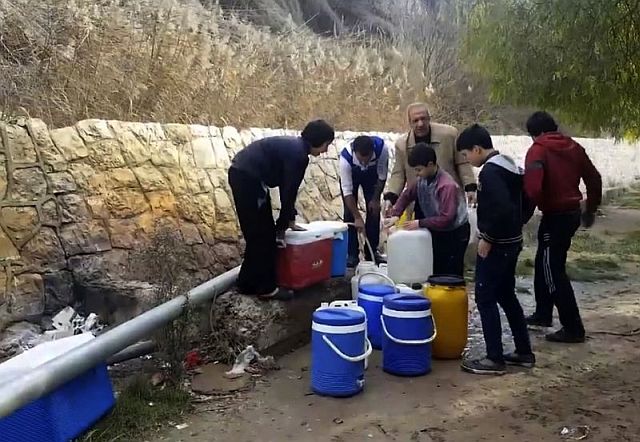
Water supplies to Damascus have been largely cut off for nearly two weeks because of fighting between pro-government forces and rebels for control of the main tributary, forcing millions in the Syrian capital to scramble for enough to drink and wash with. (AP PHOTO).
BEIRUT — Residents of Damascus are scrambling for clean water after the government attacked rebels holding the city’s main source in a nearby valley, leading to an accidental outage that has stretched on for nearly two weeks.
The cut-off is a major challenge to the government’s effort throughout the nearly six-year-old civil war to keep the capital as insulated as possible from the effects of the conflict tearing apart much of the country.
“I have stopped cleaning the house, washing dishes or clothes. We no longer take showers,” said Mona Maqssoud, a 50-year-old resident of Damascus. She said residents have relied on water tankers that come by occasionally and give 20 liters of water to each house, but that hasn’t been enough.
“We begged the drivers (to return) to our neighborhood, but they refused.”
The cut-off, since Dec. 22, is the longest Damascus has seen, say residents, who are accustomed to intermittent outages.
The opposition has long controlled Wadi Barada, the valley northwest of Damascus through which the river of the same name flows to the capital. The Barada River and its source, the Ain al-Fijeh spring, supply 70 percent of the water for Damascus and its environs.
The government and the opposition had previously had an understanding to keep water services running. But that modus vivendi ended when forces of President Bashar Assad and his allies, the Lebanon Hezbollah guerrilla force, attacked the valley, home to some 100,000 people.
The two sides blame each other for the cut-off.
Disclaimer: The comments uploaded on this site do not necessarily represent or reflect the views of management and owner of Cebudailynews. We reserve the right to exclude comments that we deem to be inconsistent with our editorial standards.
